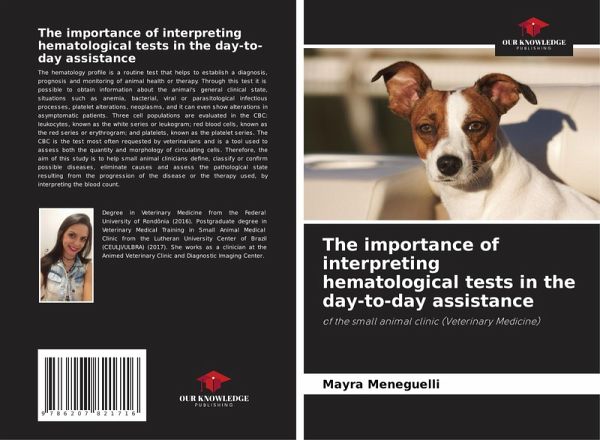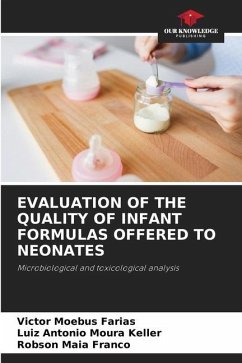
The importance of interpreting hematological tests in the day-to-day assistance
of the small animal clinic (Veterinary Medicine)
Versandkostenfrei!
Versandfertig in 6-10 Tagen
24,99 €
inkl. MwSt.

PAYBACK Punkte
12 °P sammeln!
The hematology profile is a routine test that helps to establish a diagnosis, prognosis and monitoring of animal health or therapy. Through this test it is possible to obtain information about the animal's general clinical state, situations such as anemia, bacterial, viral or parasitological infectious processes, platelet alterations, neoplasms, and it can even show alterations in asymptomatic patients. Three cell populations are evaluated in the CBC: leukocytes, known as the white series or leukogram; red blood cells, known as the red series or erythrogram; and platelets, known as the platele...
The hematology profile is a routine test that helps to establish a diagnosis, prognosis and monitoring of animal health or therapy. Through this test it is possible to obtain information about the animal's general clinical state, situations such as anemia, bacterial, viral or parasitological infectious processes, platelet alterations, neoplasms, and it can even show alterations in asymptomatic patients. Three cell populations are evaluated in the CBC: leukocytes, known as the white series or leukogram; red blood cells, known as the red series or erythrogram; and platelets, known as the platelet series. The CBC is the test most often requested by veterinarians and is a tool used to assess both the quantity and morphology of circulating cells. Therefore, the aim of this study is to help small animal clinicians define, classify or confirm possible diseases, eliminate causes and assess the pathological state resulting from the progression of the disease or the therapy used, by interpreting the blood count.












